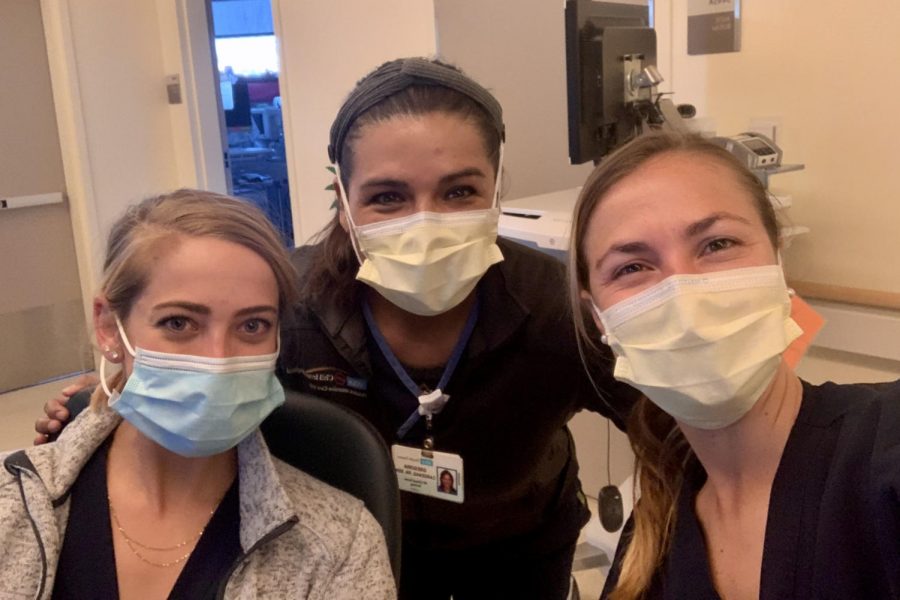As my family and I sat around the dinner table, I heard my mom open the front door. Happy that she was finally home from work, I rushed to tell her that I had gotten into college that afternoon. I could tell that she had had a hard day, but I thought my news would cheer her up. After telling her, she gave me a hug, and she told me I had done a great job. She, however, seemed down. She took her dinner to the couch and slumped over to eat it.
Although I know my mom often has long, hard days at work, I could tell something was different on this night. I could see the imprint that her mask had left after she’d worn it all day. Above the mark from her mask, her eyes were so droopy that it almost looked like she was asleep. I had never seen her looking so burnt out.
During the pandemic, healthcare workers in intensive care units and emergency rooms have been pushed to their limits. We’ve seen stories about nurses and doctors having to work without proper protective gear and heard countless reports of Covid patients being treated in hallways or tents set up outside. While it’s important to acknowledge the severe impact of the virus on the ICU and emergency rooms, the pandemic has affected other aspects of the healthcare industry as well.
In order to get a better idea of how Covid has changed healthcare, even for patients who don’t have Covid specifically, I decided to interview my mother along with two other FSH parents who work in the field.
Georgia Cardenas, Registered Nurse
My mom, Georgia Cardenas, has worked as a nurse at Ronald Reagan UCLA Medical Center since 1997. She works in the Pediatric Intensive Care Unit (PICU), so she works with children that require a high level of care. Whether for transplants, trauma or genetic diseases, many of the kids she treats are intubated or on life-support. My mom is responsible for giving them medications and monitoring the machines that keep them alive.
Fortunately for my mom, the PICU at UCLA was not hit as hard by Covid compared to other hospitals. However, there have still been a lot of challenges for her and her colleagues during this time.
While adult patients have not been allowed to have visitors in most hospitals during Covid, families have been allowed to visit their children in the PICU. Only one parent is allowed to come and sit bedside, though, which can be difficult for families.
“Having a sick child is every parent’s worst nightmare, and it can be emotionally challenging to watch families struggle, especially during this time when the whole family can’t be together,” my mom said.
On one of my mom’s harder days during Covid, she had a patient, a five-year-old girl, who was going to die. Normally, when a child in the PICU dies, the whole family is there. Grandparents, cousins, aunts and uncles all come in to say their goodbyes. With the Covid precautions that are now in place, only two siblings and two parents are allowed to be in the room for the child.
The little girl had four siblings, meaning that her family had to choose which siblings could be there during their sister’s last moments.
These tragic moments don’t only impact the families; they also take a toll on the doctors and nurses.
“It’s especially hard to be the person that has to tell the family they can’t be together during such a horrible time,” my mom said.
Not only are PICU patients’ encounters with their families totally different, but their interactions with the nurses and doctors have changed as well.
“My coworkers and I discuss how sad it is that the kids aren’t able to see our facial expressions. They only see adults with masks, which is probably scary for them. I wish they could see us smiling,” my mom said.
Although the pandemic has brought about so much sadness, my mom tries to focus on the positive aspects that have come from this experience. Like other healthcare workers, she has noticed more appreciation for her profession.
“I already felt that people respect nurses, but the outpouring of gratitude was surprising for my coworkers and me. Patient families, former patient families and restaurants and businesses around the Westwood area were dropping off food and other goodies for the staff,” my mom said.
More than anything, my mom is grateful that she gets to continue to help people during this difficult time.
“I love nursing so much because you get to help a child with their physical care, but you also get to help a family through a crisis. This experience has proved to me that nurses — and really all healthcare workers — make the biggest difference,” my mom said.
Lauren Bender, Physician’s Assistant
Lauren Bender, mother of Cameron Bender ‘23, works at an outpatient clinic at USC as a physician’s assistant (PA). She works in the department of urology and specializes in kidney stone treatment and prostate cancer.
While Bender has dealt with other work-related challenges before, nothing has been as impactful as a global pandemic.
“I’m telling you, Covid has completely turned our world upside down. Everything that we do has changed,” Bender said.
Like my mom, Bender has noticed that masks and physical distancing with patients causes a substantial disruption in communication.
“It’s amazing to me how much communication is lost without visualizing people’s mouths. It’s especially hard because we have a lot of older patients and international patients where English is their second language. I find myself more often than not having to say, ‘Excuse me, can you repeat that?’” Bender said.
Communication with patients is important for PAs because they are in charge of getting a detailed history of the patient and their illness. These new barriers in communication make fully understanding the patient’s background even more challenging.
Not only are patient relationships with PAs changing but the whole experience of going to the clinic has shifted. The patient is the only person allowed in the room with the staff.
“In some cases, patients are getting really hard news, and to be in that situation without somebody there has made an already hard situation even more difficult for people,” Bender said.
There are, however, bright sides to working during the pandemic. Not only was Bender one of the first people to get a vaccine but she has also noticed that her profession is getting more recognition.
“For my profession specifically, this crisis has actually shined a lot of light on this job and made people more aware of what we do, which is definitely a benefit,” Bender said.
Despite the hardships and burnout that healthcare workers face, for many Covid has reinforced the importance of their jobs.
“Having a job in healthcare is such an incredible privilege because it gives you an opportunity to be in someone’s life in such a personal way. It’s almost like a sacred encounter to help people through very vulnerable experiences. It’s not just about the medicine, it’s about the people and the connections you make,” Bender said.
Kristin Chapman, Pediatrician
Reese Chapman’s ‘21 mother, Kristin Chapman, is a pediatrician at Huntington Health Physicians, Pasadena Pediatrics. She has worked there for 18 years and currently works part-time, seeing about 12 patients per day. Chapman loves that her job involves directly working with people and building relationships with them.
When Covid hit, her office had to alter their schedule so they could immediately assign a patient to a room upon arrival. This change has prevented patients from sitting in a crowded waiting room as well and has caused a decrease in the number of patient visits the office gets per day.
In pre-Covid times, Chapman normally alternated well visits with sick visits. Now, she sees all her patients with routine checkups from the morning to around 3 PM and then sees her sick patients during the remaining part of the day, the idea being to keep sick patients separate from well patients.
In addition to changing their schedule around, Huntington Health Physicians has also made it possible for patients to have their appointments virtually.
During Covid, Chapman has become concerned about her patients’ mental health.
“I feel that the increased incidence of anxiety and depression caused by the isolation of quarantine is causing detrimental and lasting effects on children and teens,” Chapman said.
Additionally, Chapman acknowledged that many doctors are struggling during this time.
“For many doctors, I feel that another tremendous challenge during Covid has been the decreased income stemming from decreased patient visits, whether because people are afraid to come in or because it’s not safe to have them come in,” Chapman said.
Chapman found a silver lining in the fact that she was able to continue working and help the families that need her.
“It was nice to go to work and be reminded that, despite Covid, life goes on. Babies continue to be born. My patients continue to grow and develop into young adults. And moms and dads continue to need guidance and support,” Chapman said.
This story was originally published on Veritas Shield on March 12, 2021.



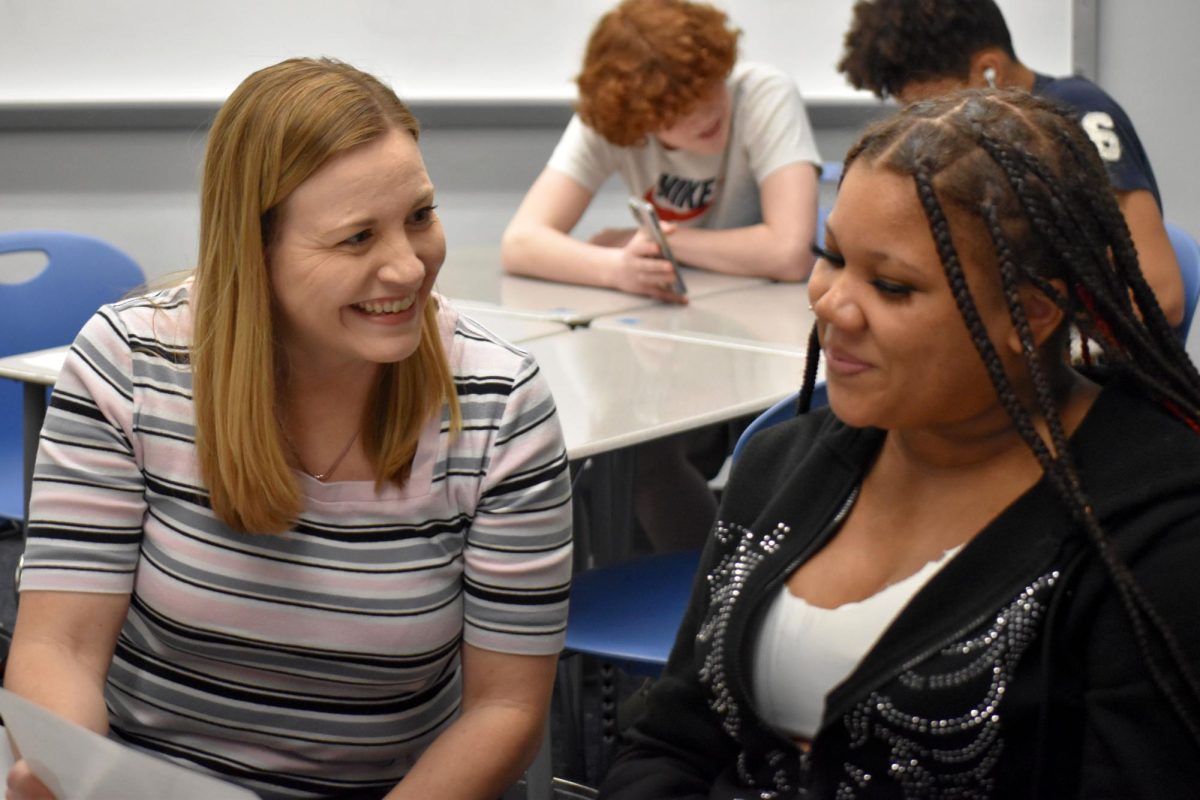
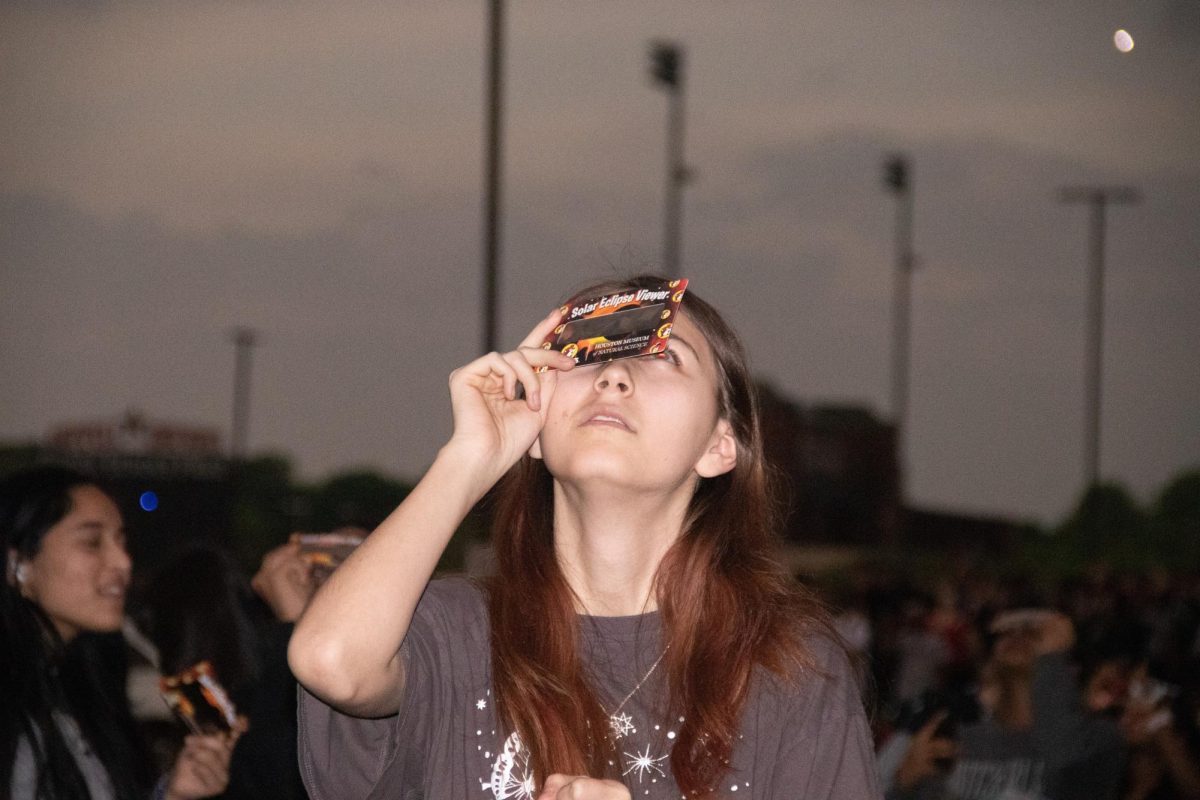










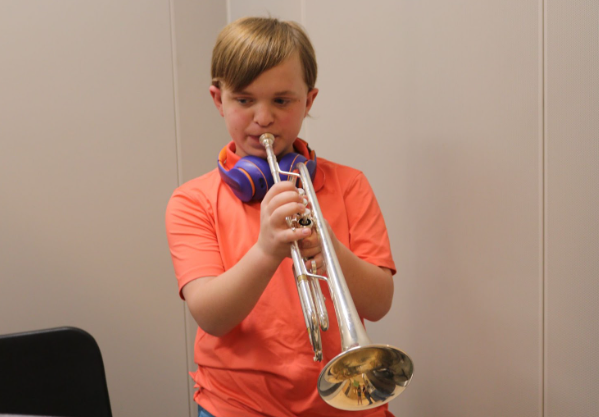

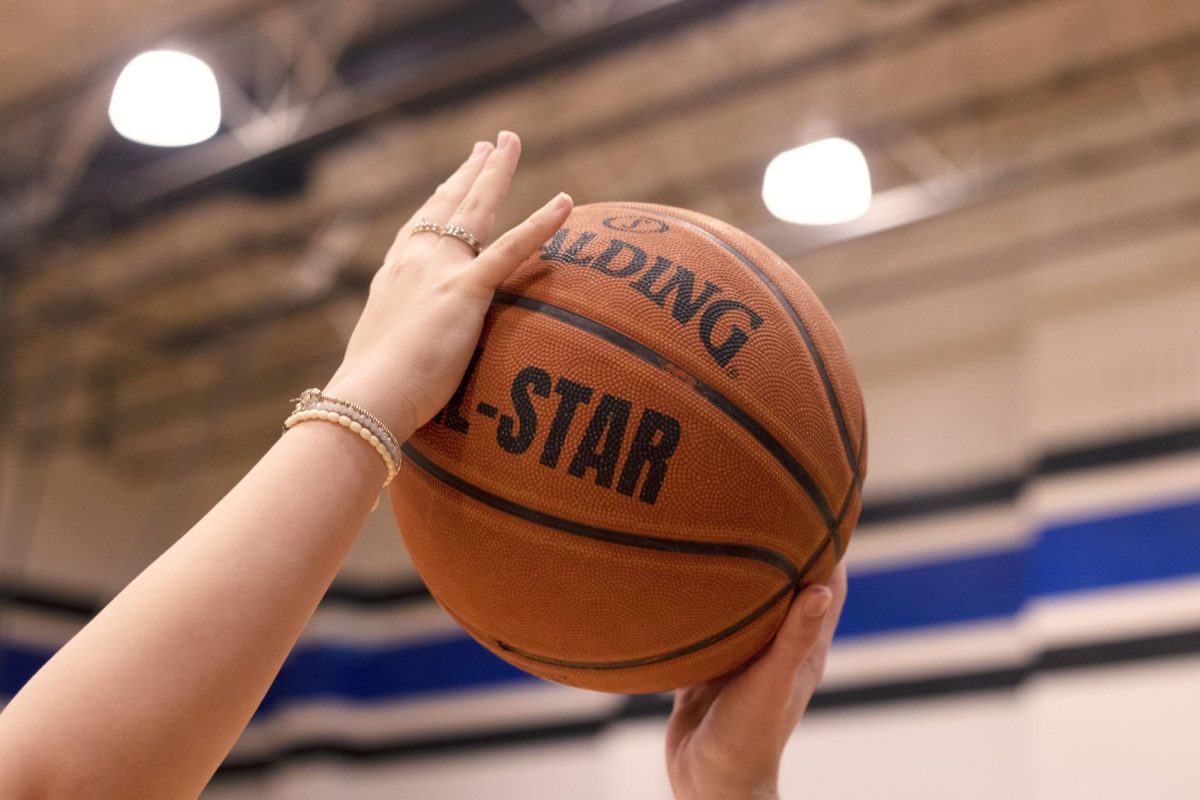


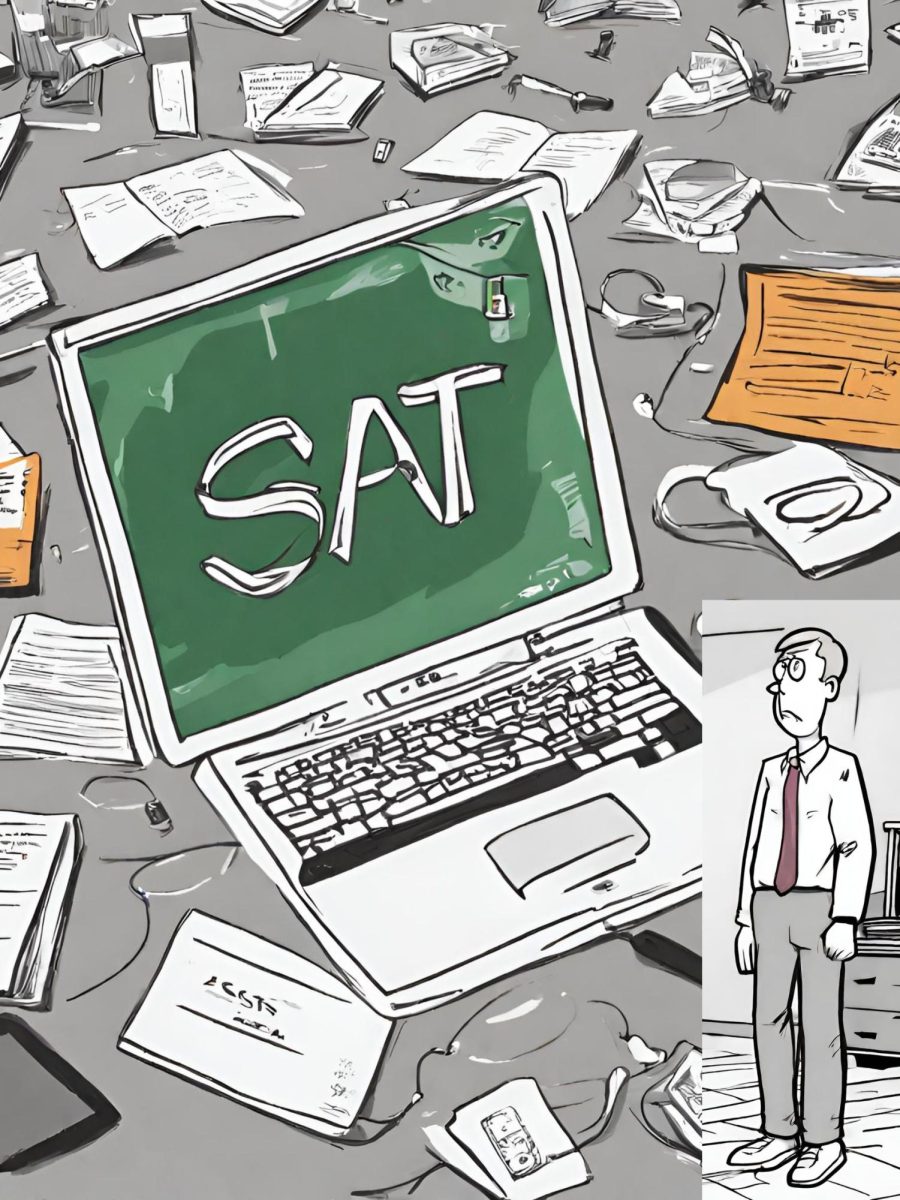






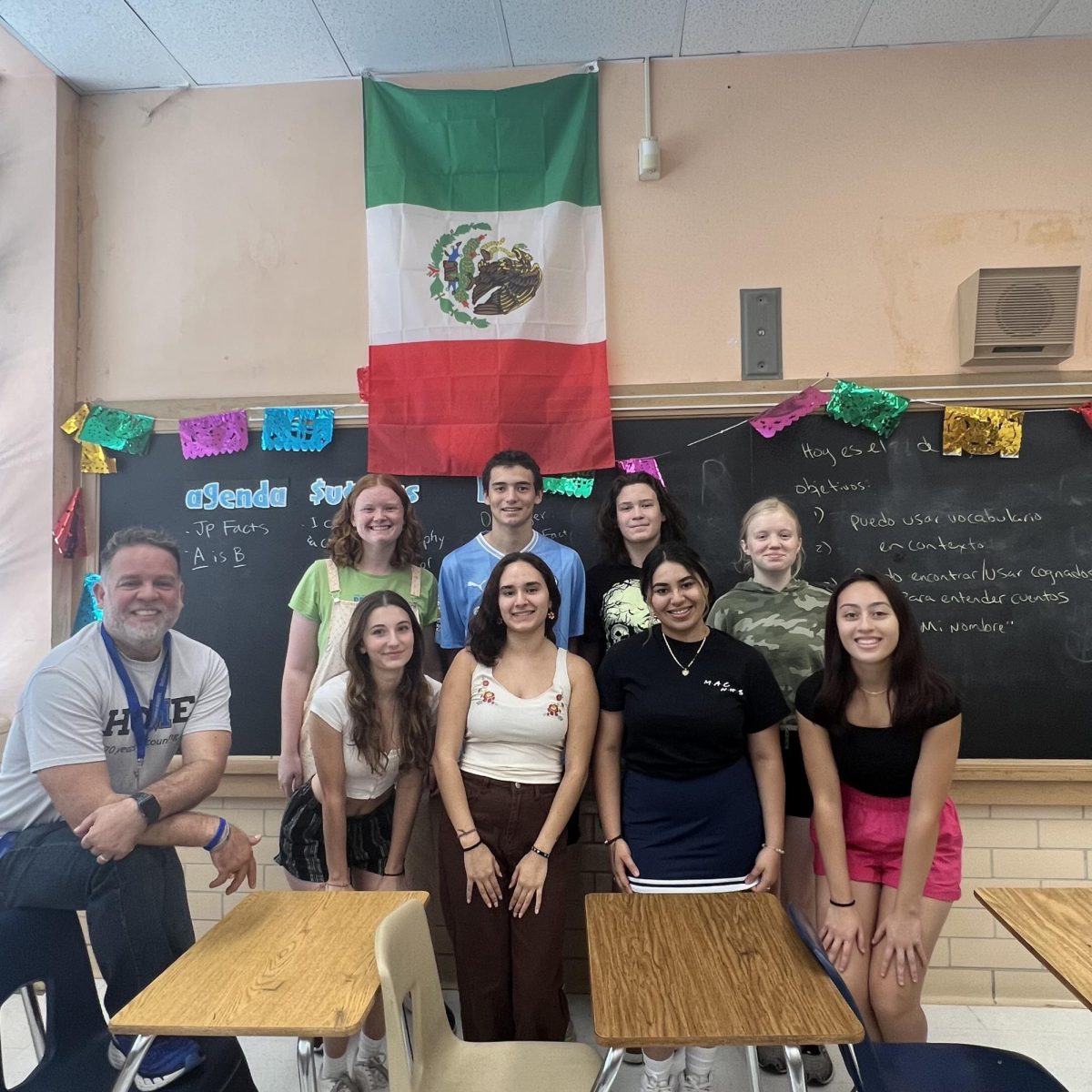

![IN THE SPOTLIGHT: Junior Zalie Mann performs “I Love to Cry at Weddings,” an ensemble piece from the fall musical Sweet Charity, to prospective students during the Fine Arts Showcase on Wednesday, Nov. 8. The showcase is a compilation of performances and demonstrations from each fine arts strand offered at McCallum. This show is put on so that prospective students can see if they are interested in joining an academy or major.
Sweet Charity originally ran the weekends of Sept. 28 and Oct. 8, but made a comeback for the Fine Arts Showcase.
“[Being at the front in the spotlight] is my favorite part of the whole dance, so I was super happy to be on stage performing and smiling at the audience,” Mann said.
Mann performed in both the musical theatre performance and dance excerpt “Ethereal,” a contemporary piece choreographed by the new dance director Terrance Carson, in the showcase. With also being a dance ambassador, Mann got to talk about what MAC dance is, her experience and answer any questions the aspiring arts majors and their parents may have.
Caption by Maya Tackett.](https://bestofsno.com/wp-content/uploads/2024/02/53321803427_47cd17fe70_o-1-1200x800.jpg)
![SPREADING THE JOY: Sophomore Chim Becker poses with sophomores Cozbi Sims and Lou Davidson while manning a table at the Hispanic Heritage treat day during lunch of Sept 28. Becker is a part of the students of color alliance, who put together the activity to raise money for their club.
“It [the stand] was really fun because McCallum has a lot of latino kids,” Becker said. “And I think it was nice that I could share the stuff that I usually just have at home with people who have never tried it before.”
Becker recognizes the importance of celebrating Hispanic heritage at Mac.
“I think its important to celebrate,” Becker said. “Because our culture is awesome and super cool, and everybody should be able to learn about other cultures of the world.”
Caption by JoJo Barnard.](https://bestofsno.com/wp-content/uploads/2024/01/53221601352_4127a81c41_o-1200x675.jpg)





